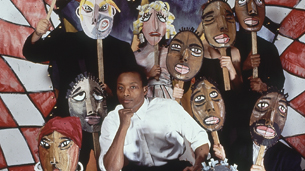One particularly interesting aspect of Schneider’s “Performing Remains” article is her emphasis on archival collections as a primarily white and Western documentation of history. Because of her skepticism regarding what is included in archives, she leaves readers with a sense of uncertainty and doubt about the reliability of our historical sources. I am now wondering if archives are even important and helpful considering their heavy biases. Often times, an account of history is created relying solely on what is included in archives. This is dangerous because it allows the possibility for an incorrect report to be circulated. Additionally, Schneider emphatically communicates that “memory cannot be housed in a body and remain”(101), meaning that archives cannot accurately represent and document performances and other historically significant events. Since memory has an abundance of holes and is different for everyone, it is not a dependable source of information. An intriguing part of Birns’ article “Ritualizing the Past: Ralph-Lemon’s Counter-Memorials” is his stress on ritualizing “the past, not monumentalizing it.”(22) Unfortunately, monumentalizing a significant historical event can cause ambivalence in observers and create a false sense of apology and forgiveness for the past. Furthermore, Birns communicates that every individual has the agency “to construct”(22) the past instead of complacently accepting the common narrative as truth. Using bodies as the archive can help communicate a more accurate representation of history and convey it to future generations. These concepts make me wonder if society has the ability to create a false history and question if history will ever fully be understood.


Bodies in Revolution
